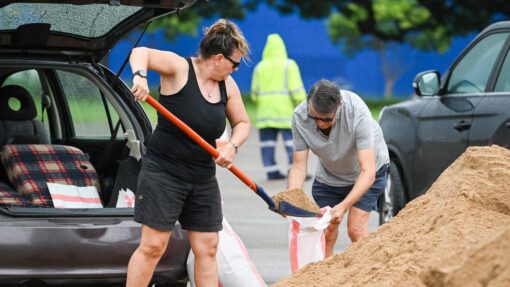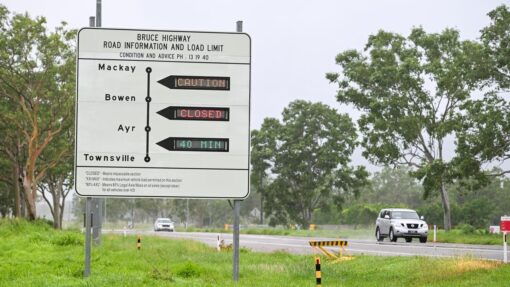Sydney’s soggy summer set to break records
Farid Farid and Phoebe Loomes |
Sydney has likely experienced its wettest summer in 30 years and its most humid in a decade, one meteorologist says.
Weatherzone’s Ben Domensino on Thursday said data suggests the NSW capital has already surpassed the two records for the season.
“Preliminary data suggests that this has been Sydney’s most humid summer in 10 years,” he wrote on Twitter.
“La Nina and a marine heatwave in the Tasman Sea contributed to this muggy season.”
Sydney was having its wettest summer in 30 years with its seasonal rainfall hitting nearly 520mm after being lashed with more than 120mm in the last 48 hours, Mr Domensino added.
Emergency crews took more than 1100 calls for help in the Sydney area in the past 48 hours, with concerns growing further north.
SES Assistant Commissioner Dean Storey said the northern coastal areas of NSW were a new focal point with poor weather looming.
“Our focus is now very much shifting to that north coast and the far north coast of NSW with that very concerning weather system … sitting just off the coast and due to make landfall,” he told the ABC on Thursday.
The area was already a “key focus” after a number of flood rescues in the past two days including six in the past 24 hours, Mr Storey said.
Bureau of Meteorology modelling suggest heavy rain and storms will continue in northeast NSW and southeast Queensland in the next two to three days as a low-pressure trough lingers over the region.
This rain has already caused flooding on both sides of the border, saturating the ground and priming the landscape for further flooding.
Parts of the Mid North Coast as well as the Northern Tablelands and Northern Rivers regions are also in for more heavy rain.
About 100-160mm of rain over six hours is expected for parts east of Grafton and Kyogle, the Bureau said.
It also warned of thunderstorms and heavy rainfall across inland and southeast NSW.
Slow-moving storms may develop, bringing moderate to heavy bursts of rainfall leading once again to flash flooding.
AAP


